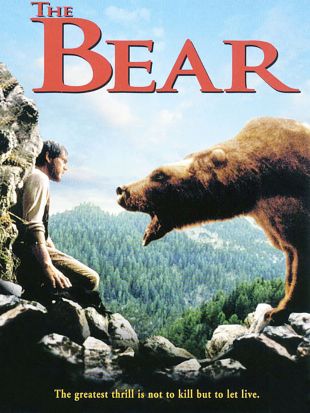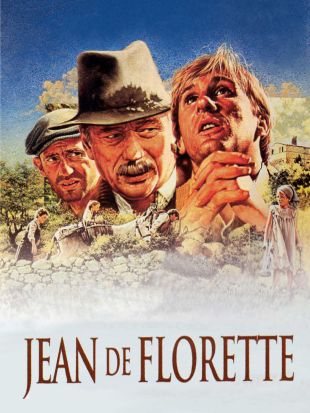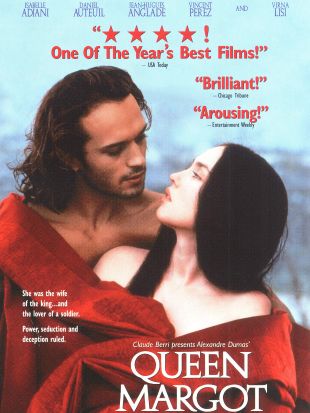An actor turned director, producer, and screenwriter, Claude Berri is known in France and abroad for making films that offer both comedic and dramatic explorations of the prejudices and anxieties that plague most people, and their alternately deleterious and hilarious repercussions. His work tends to be intensely personal and has oftentimes been informed by his own background as the child of Jewish immigrant parents.
Born as Claude Langmann in Paris on July 1, 1934, Berri grew up during the war years under the protection of his parents' gentile friends. As a young adult, he worked for a brief time as a furrier before becoming an actor. He made his screen debut in Claude Autant-Lara's Le Bon Dieu Sans Confession (1953). After playing a series of small roles in such films as Claude Chabrol's Les Bonnes Femmes (1960), Henri-Georges Cluzot's La Verité (1960), and Maurice Pialat's Janine (1962), Berri made his directorial debut with the 1965 short La Poulet. The film won an Oscar for Best Live Short and a prize at the Venice Film Festival, and Berri proceeded to release two more short films, Les Baisers and La Chance et L'Amour, the following year.
Berri wrote and directed his first feature-length film, Le Vieil Homme et L'Enfant, in 1968. The story of a young Jewish boy (Alain Cohen, who would go on to portray Berri's alter-ego in a number of his films) who befriends an anti-Semitic old man (famed Swiss actor Michel Simon), the film was a deeply personal one for the director, and it earned international acclaim for its tender, unsentimental execution. After directing a comedy, La Pistonné, which starred Guy Bedos as a draft-dodger, Berri returned to more personal terrain with Le Cinema de Papa in 1970. Featuring Berri as himself (and Alain Cohen as his younger self), the film was the director's autobiographical exploration of his youth and teen years.
Between 1972 and 1975 Berri directed four films, all of which were (often satirical) comedies revolving around the sexual desires and peccadillos of the average French male. One of these, La Première Fois (1976), covered the sexual awakening of Berri's alter ego (Cohen again) and also provided a glimpse of Jewish life in 1950s France. Berri subsequently tried his hand at straight romance with Je Vous Aime (1980), which starred Catherine Deneuve as a woman reflecting on the state of her love life and featured a cast that included Gérard Depardieu, Serge Gainsbourg, and Jean-Louis Trintignant. During the early '80s much of Berri's energies were focused on producing -- in 1979, he set up his own production company, Renn Films, and he later established AMLF, his own distribution firm. Among the many films he went on to produce were Roman Polanski's Tess (1979), Jean-Jacques Annaud's L'Ours (1988) and L'Amant (1992), Patrice Chéreau's La Reine Margot (1994), and Josiane Balasko's Gazon Maudit (1995).
As a director, Berri had one of his greatest successes to date with Tchao Pantin (1983). A drama that starred the famed satirist Coluche as an alcoholic gas station attendant who befriends a troubled young drug dealer (Richard Anconina), the film was a huge critical success and won a number of Césars, including awards for Coluche and Anconina and a Best Director nomination for Berri. The director had further success with two more straight dramas, Jean de Florette and its sequel, Manon des Sources (both 1986). The films, which were adapted from Marcel Pagnol's story of greed, desire, and unrequited love in the early 20th century French countryside, both garnered large amounts of international praise, including (in the case of the former) a Best Film British Academy Award and (in the case of the latter), acting Césars for Daniel Auteuil and Emmanuelle Béart.
Berri did not direct another film until 1990, when he released Uranus. A political satire set in a post-war French village peopled by falsely patriotic hypocrites, the film was a starring vehicle for Depardieu, who portrayed the village's fearless and ill-fated innkeeper. Depardieu was also the star of Berri's next feature, Germinal (1993). An epic, passionate adaptation of Emile Zola's novel about the horrific living conditions in a 19th century French mining town, it was, at $30 million, the most costly French film ever made, and it served as another example of Berri's shift from lightweight filmmaking to gargantuan productions. Unfortunately for him, the film did not fare particularly well with either critics or audiences, and it was four years until he ventured back into the director's chair.
When he did, it was to make Lucie Aubrac (1997), another political drama. Set during the French Resistance, it starred Carole Bouquet as its titular heroine, a woman struggling to save her husband from the hands of the Gestapo. The film earned considerable transatlantic acclaim, and Berri followed it in 1999 with La Debandade. The film found Berri back on familiar territory: a sex comedy about a man searching for a cure for his impotency, it starred Berri as its protagonist, the aptly named Claude Langmann, and Fannie Ardant as his patient wife.


